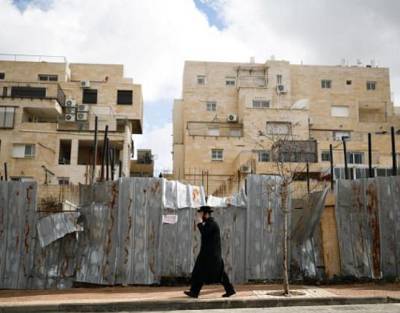Likud calls for annexation of parts of West Bank
01/01/2018| IslamWeb
Israel's governing Likud party has approved a draft resolution urging its leaders to formally annex large parts of the occupied West Bank, a move that is expected to further anger Palestinians.
Members of the Likud Central Committee voted on Sunday in favor of imposing Israeli sovereignty over illegal settlements in the occupied West Bank.
The resolution is non-binding for cabinet ministers but carries some political force within the party of Benjamin Netanyahu, the Israeli prime minister.
Netanyahu himself did not attend the central committee’s meeting.
Arab members of parliament told Al Jazeera that if the resolution were to go to the Israeli Knesset in its current form, that would signal the end to the peace process.
"It would really mean that there is no more attempt to try to find a two-state solution to the crisis," Al Jazeera's Mohammed Jamjoom, reporting from West Jerusalem, said.
"We also spoke with many analysts, who said that ... there is no way that such an inflammatory resolution would actually get to the Knesset in its current form," he added, noting that were "many more questions at this hour than answers" about what is going to happen next.
Israeli settlements are considered illegal under international law, and are seen as a major stumbling block to peace efforts as they are built on land the Palestinians see as part of their future state.
West Jerusalem was seized by Israel during the 1948 Arab-Israeli war, when more than 750,000 Palestinians were expelled from historic Palestine, referred to by Palestinians as the Nakba (catastrophe) when Israel was officially founded.
Israel subsequently occupied and annexed the eastern part of the city after its military victory in the 1967 war, but its control over East Jerusalem has never been recognized by the international community.
Palestinian leaders want occupied East Jerusalem as the capital of a future state, while Israel says the city cannot be divided.
'Cynical political ploy'
Ahead of the vote, analysts told Al Jazeera that they saw the Likud central committee’s vote as a cynical political calculus to rally the party faithful.
The vote "is not binding and it's not even relevant", Mitchell Barak, an analyst at Kevoon Global Research told Al Jazeera.
"It's just the prime minister's right of Centre party just trying to make a policy statement, which really is meaningless, and ... just getting ready the drumbeat of election," he added.
"They're just trying to shore up their popularity on the right."
The vote, however, did come at an especially tense time following the controversial US decision to recognize Jerusalem as Israel's capital.
US President Donald Trump's move on December 6 sparked deadly protests in the occupied Palestinian territories and major rallies in support of the Palestinians across the Muslim world.
A resounding majority of United Nations member states also defied unprecedented threats by the US to declare the US' recognition of Jerusalem as Israel's capital "null and void".
"Whatever does happen next, this is a tense time and this vote may add another element of uncertainty," said Jamjoom.
PHOTO CAPTION
An ultra-Orthodox Jewish man walks on a road in the Israeli settlement of Beitar Illit in the occupied West Bank February 15, 2017. Reuters
Al-Jazeera

